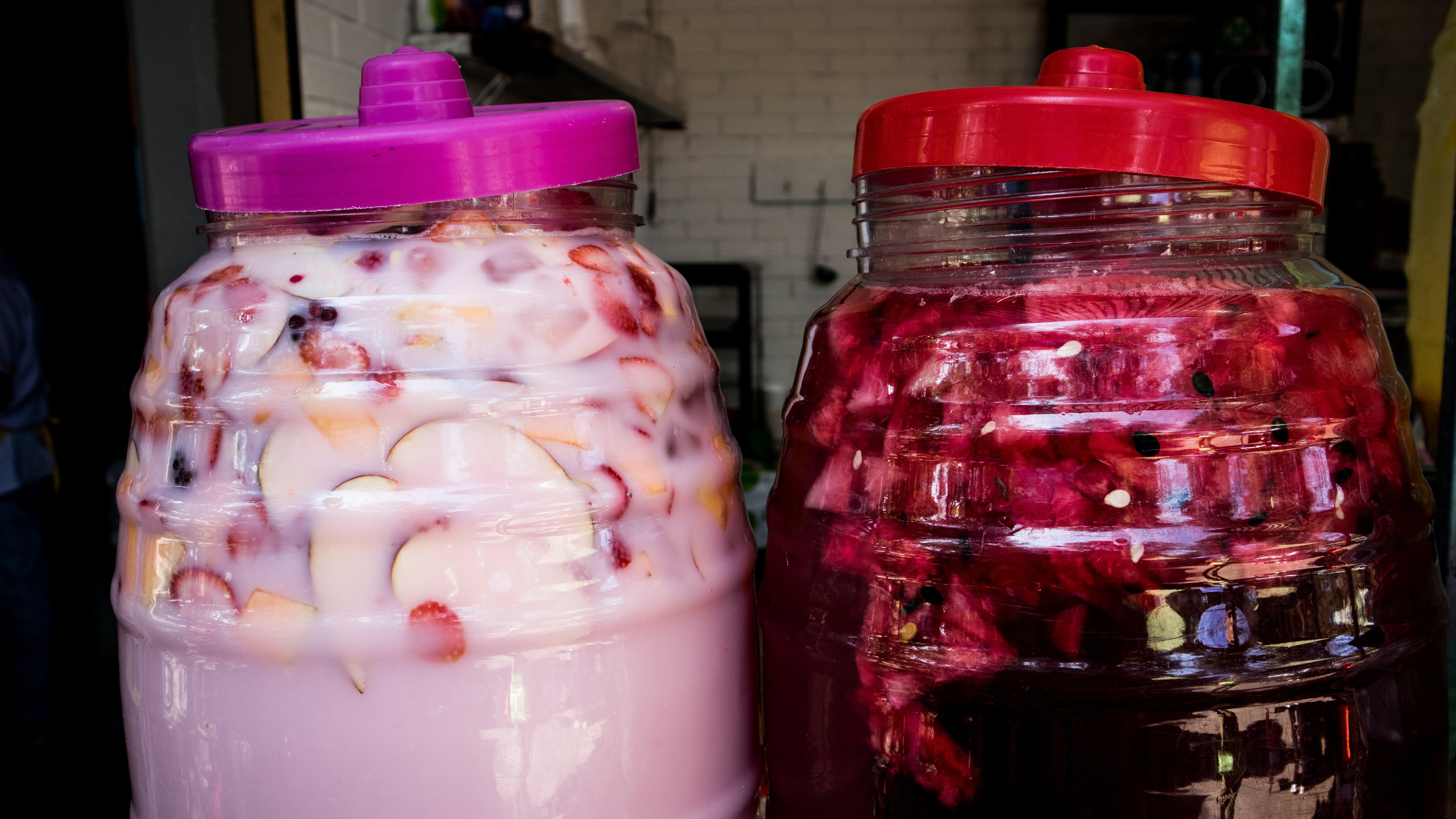How TikTok Is Messing With Latinx Food, And Why It Needs To Stop
The social media platform is "inventing" all kinds of culturally significant dishes.
The internet, and more specifically TikTok, is one of those special places where recipe ideas can be shared and a sense of community can be built around food, making new types of cuisine discoverable to new populations of people. Unfortunately, it's also becoming a place where cultural identity is erased in the process.
While I found countless examples of how the cultural roots of Latino foods are being scrubbed away on TikTok, it should be noted that the same has happened to just about every other culinary tradition as well. For example, dosa, a south Indian food made from a fermented batter of lentils, rice, and water, recently made the rounds on TikTok as "lentil wraps" with no mention of their Indian origins. User @simply_suha succinctly explained why that's got to stop.
@simply_suha #stitch with @sezzy.brown no hate, just give credit where it's due! #lentilwraps #dosa #southindian #southasian #desifood #Hyderabad #kannada #tamil #kerala
"I don't really like the fact that they're being repackaged as some kind of new 'health food item' when they've been around for years," the user explains in the video above. "I don't think it's bad that people are learning about it. It's just that you should give credit where it's due and refer to it by its proper name."
My thoughts exactly. Here are three Latinx dishes that TikTok needs to stop messing with.
Street corn = Esquites
Esquites are a Mexican street food. If you've ever had an elote, esquites are essentially the same, but the corn kernels are shaved off the cob and served in a cup. The dish generally consists of corn kernels, mayonnaise, butter, cheese, lime, and chili powder.
However, on TikTok—as well as just about every recipe blog on the planet—this dish is promoted as "Mexican street corn salad." Yes, the dish itself is a street food from Mexico, but it does have a name and did not need a new, blander one. Esquites have been part of the culture dating back to the Aztec empire, explains the official website of the Mexican government. The name itself comes from the indigenous language, Nahuatl, and means "toasted corn."
By calling esquites Mexican street corn, TikTok influencers like @janellerohner are essentially rebranding the recipe as if it's something newly concocted by the internet. We don't call spaghetti "Italian sauce noodles," so why rename this traditional piece of Mexican cuisine?
Spa water = Agua fresca
Another instance of cultural food erasure on TikTok came recently in the form of something called "spa water." This trendy new "health drink," which appeared in a series of posts from TikTok user @gracie_norton, was described as "anti-inflammatory" and packed with antioxidants. What this "spa water" actually is, though, will already be familiar to millions: it's agua fresca.
Agua frescas are a drink basically consisting of blended fruit (sometimes vegetables or even seeds), water, ice, and some kind of sweetener. Agua frescas come in a variety of flavors, from cucumber to pineapple—even the sweetened rice and cinnamon drink horchata can be categorized as an agua fresca.
Once again, this is a drink that has been present in Latino culture since the time of the Aztec empire, explains New Mexico Magazine. The story is that the Aztec people gathered fruit that grew along the waterways of Tenochtitlán and muddled it along with ice from dormant volcanoes nearby.
Although the infamous "spa water" videos were eventually taken down from TikTok and replaced with an apology issued by the OP, the damage was still felt by the Latinx community, and many were quick to call it out. In this particular instance the erasure felt even more severe because none of the "spa water" content acknowledged the drink's country of origin at all, and the TikTok user went so far as to act as though the the drink was an original invention. Even "Mexican street corn salad" has the word "Mexican" in it, at least.
Cowboy caviar = Salsa
The popularity of cowboy caviar on TikTok is a bit more complicated than the other previous examples solely because there are a few ingredient changes that make it seem different from the Latino dishes it mimics. Per multiple recipes online, cowboy caviar looks to be a mix of chopped bell peppers, red onion, jalapeños, tomatoes, beans (either black, pinto, or both), corn, and sometimes a dressing.
The Latinx community on TikTok has called this out as being a rip off of ceviche with beans swapped in (some Latinx people make that swap if they have a seafood allergy). Others have said it's like pico de gallo or corn salsa. While the ingredients may vary, in the end, all of these dishes come from Latinx culture and any interpretation owes something to that cuisine. It's not "cowboy" anything: Each of these recipes are commonly made in the homes of Latinx people and are dishes many of us have grown up with, yet none of our families are going viral for making them.
TikTok user @danielarabalais recently posted a pitch-perfect parody video demonstrating what many non-Latinx TikTok creators sound like when they choose to showcase Latinx recipes as their own discoveries:
We probably shouldn't be rewarding TikTok creators who decide to act like they live in a vacuum where everything new to them never existed prior to their experience with it. It's not too much to ask that these viral videos simply give credit where it is due; thousands of people will still watch them regardless. At the very least, creators can note that these recipes are inspired by longstanding traditional dishes from another culture. A quick Google search could save everyone so much grief, and would reduce the need for follow-up apology videos.
